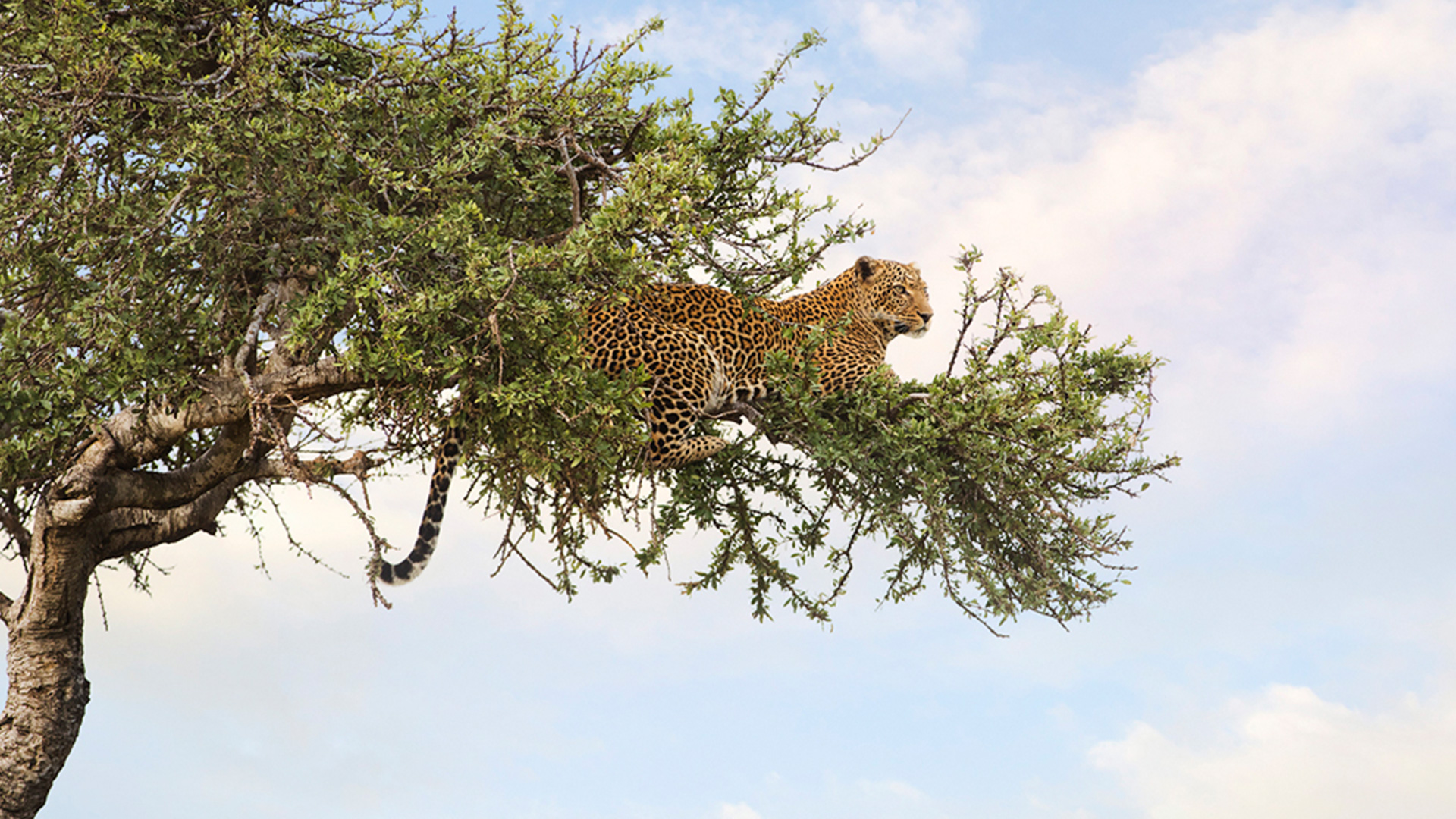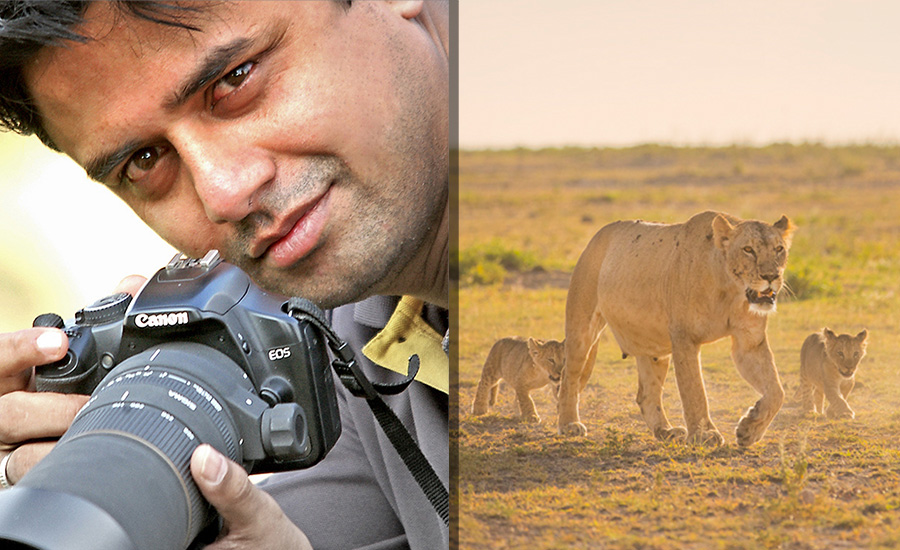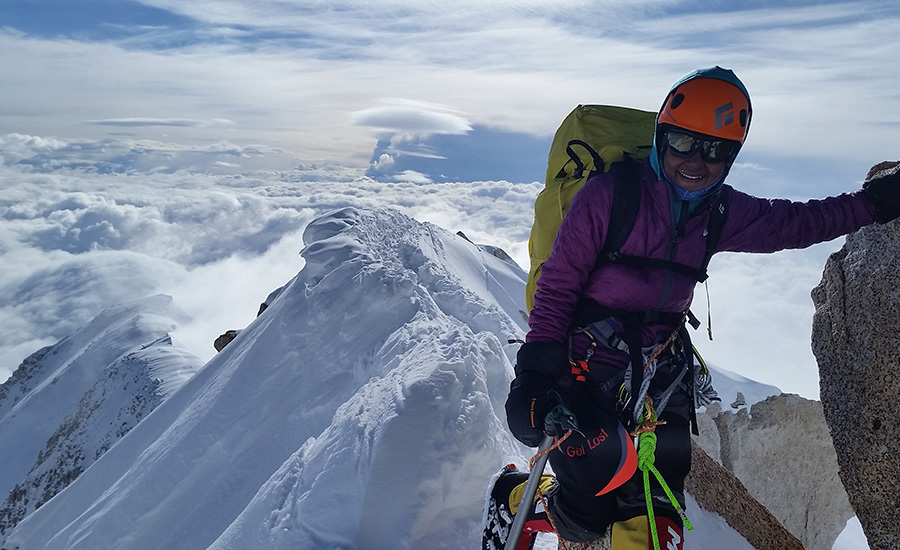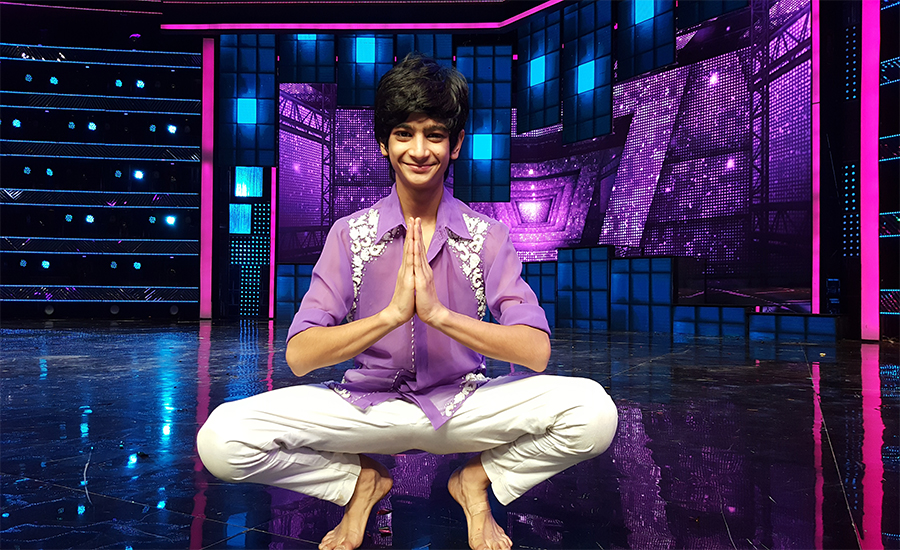

The Founder of DCP Expeditions- Dr. Caesar Sengupta’s expertise in Photography Art is phenomenal!
Known As
Dr. Caesar Sengupta
Mother's Name
Late Priti Sengupta
Father's Name
Shyamal Sengupta
Birthday
30th January 1974
Place from
Assam, India
Proudly says ‘imd1’ for
Arts-Photography
Dr. Caesar is the man behind India’s largest community of photographers. He has dedicated significant number of years towards studying, conserving and preserving the environment and being a true Wildlife Conservation Photography enthusiast. Caesar fulfilled his father’s dream of becoming a Doctor but didn't turn his back to the passion he had for Photography. Today he is known for creating wondrous story depicting images of the wildlife and natural habitat. His determination and excellence in this craft has made him win awards from National Geographic, Smithsonian and many more.We are thrilled to have the ‘DCP’ of DCP Expeditions on imd1 to share his influencing success story with us.
We are really keen to know; how did your journey begin?
Photography became my passion at the age of 12. I was fascinated by the natural world and used to get chills down my spine reading Corbett or Kenneth Anderson or watching a movie like “Born Free” where most of the times I used to land up dreaming about myself enacting the story. I also used to have a bookshelf full of books related to travel, adventure and hunting stories. As I grew up, I realized that a camera is a wonderful tool to capture wonderful moments of life forever; thus photography became an ongoing passion and thereon started the journey.My first tryst with a camera was with the Agfa Billy Record folder camera. The camera could take 6 x 9 cm pictures on a 120 film. Probably manufactured somewhere between years 1933 -1942, with a Jgestar 105 mm f8,8 lens and an A.C. Gauthier shutter with shutter speeds B, 1/25, 1/50, 1/100. I didn’t know where that camera came from in our house. I never clicked any image using this camera, nor did I see anyone in my family using the camera either. It used to be in my father’s custody when I was too small. Looking at my intense desire to possess the camera, my father gifted it to me one day. That was one of the most expensive toys I ever had at that age.
What were the hardships/hurdles you’ve encountered and how did you overcome them in your journey?
I won’t call it as hardship, but it was certainly not foreseen and planned. My father’s dream was to see his son as a doctor and the same resulted in years of academics and subsequent corporate professionalism. During all these years, the passion of wildlife kept me motivated even with the busiest schedules of all other professional pursuits. Whenever I could find an opportunity, I preferred spending time in nature’s solitude and captured all its beauties in frames as I saw it. I framed whatever I saw and felt best through my camera. I learnt from my mistakes and believed every day is a learning for me. It has been a wonderful journey so far.Success is incomplete without its share of setbacks. What advice do you give to others about handling the setbacks?Setbacks are rather very important in making anything a success. Setbacks and failures are the best teachers. Repeating same mistake is foolishness but learning from those mistakes is wisdom. Each failure needs to be analyzed, find the root cause, take a corrective action and most importantly take preventive action.
Who has been your influencer in this journey & how?
My true understanding of Wildlife Photography took a sharp turn as I got in touch with Dr S D Biju, Professor in Systematics Lab, University of Delhi. He is a scientist and though he is not a photographer, I have not found many like him as far as knowledge about photography is concerned. He made me understand the true definition of working in field. It is not a children’s play and far more than the general concept of a wildlife photographer travelling inside protected forests in safari vehicles with high end gears. Simultaneously, I also came in contact with Mr Rohinton Mehta, Technical Editor of Smart Photography, every time I interacted with him, I learnt something new. These two individuals had influenced me the most when my photography journey was taking a serious turn.
Know me Beyond Photography
Life Mantra:
Forever a student
Favorite Personalities
Amitabh Bachchan, M S Dhoni, Narendra Modi
Food I Love
I am a foodie. I do experiment with a lot of cuisines, but Indian sea food dishes are my favorite
Food I Hate
None. I can’t hate any food ever
Had I not been a Photographer then
Professionally I am a doctor who also happens to be a photographer. As on date, I can’t think of a third profession easily. Though in childhood I did have a strong intent to become a pilot one day
Like Vacations at
I love Sub Himalayan forests of Uttarakhand.
Favorite Pass time
Photography
Favorite Dialogue
“zindagi badi honi chahiye, lambi nahin”
Favorite Movies / Series
Predator
Favorite Actor / Actress
Amitabh Bachchan, Irfan Khan, Nawazuddin Siddiqui, Kangana Ranaut

What’s your success mantra?
I believe one should never stop being a student. The day I develop even a slightest feeling that I have learnt enough, I believe that would be the end of this wonderful journey.
Do you think photography and its learnings can be helpful in life even if one does not want to consider it as a career goal?
Of course. Photography is a creative art. It gives you the satisfaction of creation. It is an amazing stress buster. Several corporate companies have now started photography clubs, in-house employee engagement programs and team building exercises. Photography teaches patience, how to focus, how to avoid distractions, how to be balanced in life and how to aim towards being a perfectionist.
Which was “that” moment when you considered yourself as “I Am The 1”?
There have been more than one occasions, but I will never forget October 2014 - a team of researchers led by Prof. Sathyabhama Das Biju unraveled a 150-year-old taxonomic misconception about the common occurrence of Hylarana frog species in the Western Ghats-Sri Lanka Global Biodiversity Hotspot. Dr Biju named the Maharashtra Golden backed frog as Hylarana Caesari, after my name in appreciation of my efforts towards amphibian conservation initiatives using Photography as a tool. That day I felt like ‘I Am The 1’.
Did you get any formal training in photography? Kindly tell us about it.…
There was a hobby camp in our school in 1988, it’s been 31 years and I’m feeling nostalgic. That was my first official training on the art and science of Photography. I learnt how a camera works. I learnt about pinhole camera, what an excitement it was to come back home and make one for myself. It was a three-day workshop. That was the first time I could actually try my hands on a fully functional camera. It was a Praktica LTL 35 mm SLR camera brought to the workshop by one of my seniors.After that it has been all learning on my own. But it had its own fallacies. I learnt from mistakes and therefore, it took me years to polish my skills, which a systematic learning probably would have helped me to achieve in much less time.
Could you reflect on the importance of systematic training in photography?
Systematic learning is important in all walks of life and in all genres of academics and profession. So is photography and any genre for that matter– be it in Music, Art, Dance or Sports.
What are the pre-coaching essentials e.g. right age, mindset or anything else?
I believe there is no specific age, language or skillset criteria. But it’s good that you asked about mindset. Yes, a mindset to empty your cup and readiness to be a learner is of utmost importance.
Technology is changing the way people get trained in photography. What’s your take?
Technology is certainly changing the way. Easy availability and affordable costs of entry level digital SLRs have come down. Mirror less cameras are the talk of the town. Mobile phones have become enormously sophisticated. Social media have caused a massive wave of new generation image makers and the trend is going viral. I believe in going with the flow.
What qualities must one look for in a ‘Guru’ for training in photography?
If I have to look for a Guru, I would look for the one who doesn’t hold back any knowledge. The Guru who is not afraid of the fact, that his student would become a competition to him one day, is the real Guru. This quality is rare to find.
If you were to bring one big change in the way people get trained in photography, what would that be?
I think the biggest time in the history of photography is now. There are many changes happening. People’s affordability has increased. Gadgets have become reasonably affordable. As I said social media has completely changed the way people used to share photographs. But with increasing signal, comes increasing noise. You will find millions of crap images across the digital media. I feel what is missing, is a systematic learning platform for the young crowd, which is standardized, affordable, and easily accessible and probably even in local languages.
What do you suggest for better accessibility of photography training in remote parts of India?
That has been a dream for years. I think, with imd1 taking a massive initiative to reach out to the remotest parts of the country promoting extracurricular activities in its own unique way of combining digital platform with a brick and mortar model, this dream is now going to be true.
One thing which you feel you want to change from the past while you walk down the memory lane…
I would have gone 20 years back and enrolled in a photography workshop. I would be a better photographer today.
Your piece of advice to parents and new generation especially when some people are skeptical about career in extra curriculum…
Talents at the youngest possible age is best identified by the parents. Gone are the days when medical and engineering only were considered to be the best of the professions. The young parents are gradually coming out of this mental block. Every parent know that their child is the best. They are the ones who are most well aware about the talents of their child, be it in academics or in extracurricular activities. There are well laid guidelines and systems for those children who show academic brilliance. But if the child shows even a slightest inclination and / or talent towards extracurricular activities, our current educational system doesn’t have well identified coaching programs on those lines. Hence, our endeavor should be to encourage, motivate and counsel those parents and help them in deciding alternate career opportunities for their children in Music, Arts, Dance and Sports.
Any other thoughts you want to share?
Keep learning. Be a student for life.














